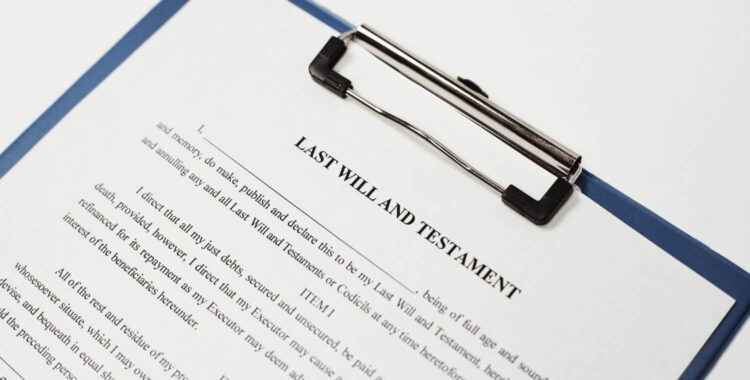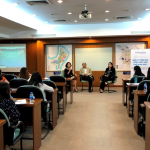Regulations relating to making wills for Viet Kieu
Vietnamese permanently residing overseas (or Viet Kieu) are an integral part of the Vietnamese ethnic community. The Socialist Republic of Vietnam always creates conditions for Viet Kieu to maintain a close relationship with their roots and homeland. Since the Vietnamese legal system has been developed and applied not only to Vietnamese citizens but also to Vietnamese residing overseas. A legal issue frequently concerned by the Vietnamese community who reside overseas is the regulations relating to making wills for Viet Kieu. This article will analyse the regulations relating to making wills for Viet Kieu under applicable Vietnamese law.
Definition of Viet Kieu
Vietnamese law does not have any legal term to define the group of people called Viet Kieu. Although, the term “Viet Kieu” has been widely used among the Vietnamese community living overseas. However, according to the most general understanding, Viet Kieu means a Vietnamese person residing abroad. According to Articles 3.3 and 3.4 of the Law on Nationality 2008, Vietnamese people residing abroad are Vietnamese citizens and people of Vietnamese origin who permanently reside and earn their living in foreign countries. People of Vietnamese origin residing abroad are Vietnamese people who used to have Vietnamese nationality which had been determined at the time of their birth on the consanguinity principle and their offspring and grandchildren are permanently residing and earning their living in foreign countries.
Regulations related to making wills for Viet Kieu
2.1 The capacity for making a will
According to regulations relating to making wills for Viet Kieu, the capacity for making a will, and for altering or rescinding a will, shall be determined in accordance with the law of the country of which the testator held nationality at the time of creation, alteration or rescission of the will.
Viet Kieu as an adult, who still holds Vietnamese nationality, has the right to make a will to dispose of his or her property when satisfying the following conditions: being of sound mind when making the will; not being deceived, threatened or coerced.
Vietnamese law will not be applied when determining the capacity to create a will of a person without Vietnamese nationality even though the will is made in Vietnam. For instance, a Vietnamese person residing abroad who no longer holds Vietnamese nationality but has changed to American nationality, his or her capacity to make a will be determined under American laws.[1]
2.2 Form of the will
According to Article 681.1 Civil Code 2015, the form of a will shall be determined in accordance with the law of the country in the place where the will is created. The form of a will is also recognised in Vietnam if it is consistent with the laws of one of the following countries: (a) The country in which the testator resided at the time of creation of the will or at the time when the testator dies; (b) The country of which the testator held nationality at the time of creation of the will or at the time when the testator dies; (c) The country in which the immovable property is located in the estate of inheritance is immovable property.
Thus, suppose that a Viet Kieu makes a will in Vietnam, regardless of the nationality of this person, the law governing the form of will is also Vietnamese law.
This provision is appropriate because the form of the will should be considered and recognised in the context of the will and the law of the country where the will is made in order to ensure enforceability of the will.
According to the regulations relating to making wills for Viet Kieu, a will must be made in writing, if it is not able to be made in writing, it may be made orally. However, an oral will is only applicable in cases where a person is likely to die and it is not possible for him or her to make a written will. If after 03 months from the time of the oral will, the testator is still alive, alert and wise, the oral will would be automatically annulled.[2]
Regarding the language of wills, the prevailing law does not prohibit Vietnamese people from making wills in foreign languages. Therefore, Viet Kieu can still make wills in a foreign language. However, in principle, when carrying out the procedures for announcing the will, the will which has been prepared in a foreign language must be translated into Vietnamese and be consular legalised, notarised or validly certified according to Vietnamese law.[3]
2.3 Contents of wills
A will must contain the following principal contents:[4]
a) The date on which the will is made;
b) The full name and place of residence of the testator;
c) The full names of the persons and the agencies or organisations entitled to inherit the estate;
d) The estate to be bequeathed and its location.
In addition to the contents prescribed by law, a will may have other contents.
A will must not be written using abbreviations or other symbols. If a will consists of several pages, each page must be numbered and bear the signature or fingerprint of the testator. In case the will is erased or altered, the person writing the will by his or her own hand or the witness to the will must sign his or her name beside the erased or altered content.
The making of a will in writing without witnesses must comply with the provisions on the content of the will as mentioned above to be recognised as valid.
In case of making a will that requires witnesses, Vietnamese residing overseas should note to the following cases:
a) Any person may act as a witness to the making of a will;
b) The following people are not allowed to act as a witness:
(i) Persons who are heirs of the testator under the will or at law;
(ii) Persons with property rights or obligations which relate to the will;
(iii) Minors, persons who lose the capacity for civil acts, and persons who have difficulties in being aware of, or controlling their acts.
Additionally, Vietnamese law does not limit the right to inherit Vietnamese residing overseas. However, for real estate, Vietnamese law clearly stipulates the conditions and forms of inheritance as land use rights and house ownership for Vietnamese residing overseas. Individuals using land have the right to inherit their land use rights according to their wills or laws, however, if the heirs are Vietnamese residing overseas, only the person allowed to enter Vietnam has the right to inherit the land use right. On the contrary, if they are not in the above subjects, they are only allowed to enjoy the value of that inheritance.[5]
Above is the general content related to the regulations relating to making wills for Viet Kieu that Phuoc and Partners share with readers. If you have any difficulties related to the legal field, please contact us. Phuoc and Partners is a law professional consulting firm established in Vietnam and which currently has many nearly 100 members working in offices in Ho Chi Minh City, Hanoi and Danang. Phuoc & Partners is also considered as one of the leading law firms with specialised staff in the legal field in Vietnam, whose practice areas are ranked first in the legal market such as Labour and Employment, Taxes, Mergers and Acquisitions as well as Litigation. We are confident to be one of the Law Firms providing the best legal services to clients.
[1] Article 681.1 Civil Code 2015
[2] Article 627, 629 Civil Code 2015
[3] Article 647 Civil Code 2015
[4] Article 631 Civil Code 2015
[5] Article 179.1, Article 186.1 Law on Land 2013, Article 8.1 Law on Housing 2014






![[Official] Hemp Oil And Cbd Oil Benefits Pure Cbd Hemp Oil Is Cbd Oil Legal In Singapore](https://phuoc-partners.vn/wp-content/plugins/wordpress-23-related-posts-plugin/static/thumbs/29.jpg)

![[Natural] & erecteen supplement vmax male enhancement for sale Build A Penis Pump](https://phuoc-partners.vn/wp-content/plugins/wordpress-23-related-posts-plugin/static/thumbs/12.jpg)